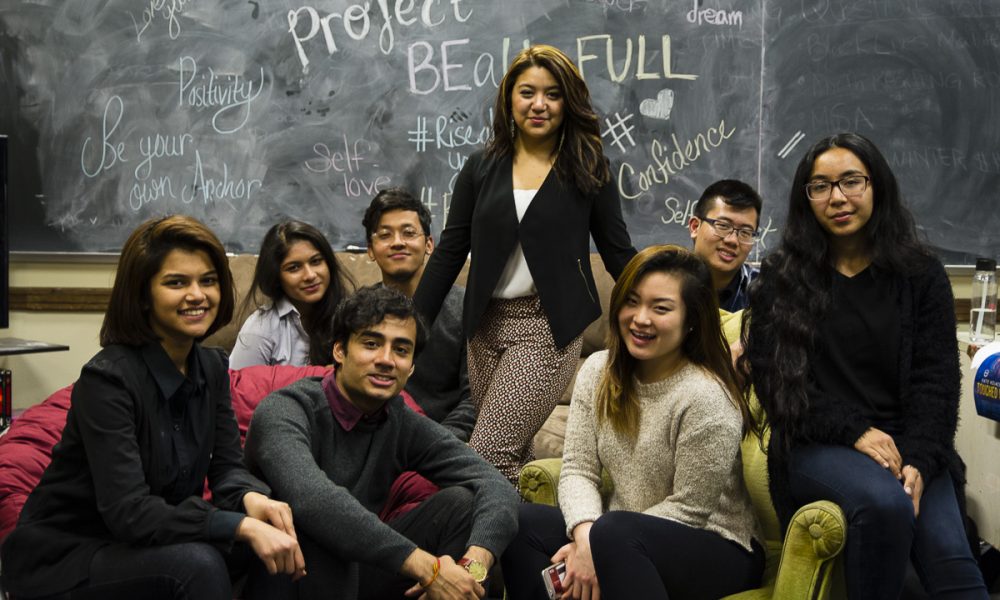Defending Obama’s Historic Cuba Visit (and Policy)
Before I decided to visit Cuba with a team of fellow student journalists, I never critically thought about the island. Who was the vice president? Why did the Cubans have their revolution? How does their economy work? If you asked me any other basic questions, I’d probably answer with an “I don’t know. Why should I?”
Those were dark times when I felt no connection to the island or its people. It took just a week to change that. They welcomed me with open arms. Now I firmly advocate improving relations with Cuba, as well as President Obama’s historic visit there.
I won’t say that everything is perfect, although many things have improved. People can speak more openly against the Cuban government and open private cooperative businesses, for example. About a quarter of Cuba’s businesses are no longer government owned. WiFi hotspots meanwhile dot Havana, more easily connecting Cuba to the outside world.
“The curve since Raul [Castro] took over is to lift restrictions, not impose them,” said Marc Frank, the longest serving foreign correspondent in Havana.
But of course, there is still work to be done. The government is still stretched thin, infrastructure is falling apart, people are poor and dissenters are still looked upon with suspicion. At the same time, the “non-state sector” (i.e. private sector) still has room to grow.
But I hope Obama will see the same determination, friendliness and humor of the Cuban people that I did. They are a group being punished by an outdated economic policy they know as “the blockade,” which blocks a range of nations from doing business with the country. Yet, most average Cubans haven’t shown outright hostilities about typical Americans. They seem to recognize it’s only a government trying to affect another government.
If anything, we share a dislike of American politics. It has been politics, after all, that dictated our foreign policy. In 1960, the Eisenhower administration cut diplomatic ties in the wake of Cuba’s communist revolution. Cuban exiles—mostly wealthy people who lost everything to the revolution—formed a powerful political lobby that, alongside a rampant fear of communism, dominated the discussion about Cuba. Legislation like the Cuban Adjustment Act and Helms-Burton Act codified the embargo and encouraged people to flee the regime. It mostly took power out of the hands of the chief executive in foreign policy.
The Cold War is over, according to historians, but many suggest that the effects of the standoff continue to be present in the tension between the United States and Cuba. Every presidential administration since Eisenhower was determined to end the Castro regime, whose popularity persisted with each American interference. Congress continues to be stubborn. Average Americans, in turn, often associate the country only with Communism or old cars.
Consequently, President Barack Obama’s three day visit to Cuba should be praised, rather than vilified as it has by some people. One woman on Facebook, for instance, called it “yet another one of their billion dollar vacations.” A man from Tennessee said Obama’s visiting “communist Cuba today” and that he’s “sure he will apologize for the freedom that we have here in America.” Someone went as far as to say, “In Barack Obama’s attempt to legitimize terror, why not begin in our own hemisphere with Cuba?” In reality, he is moving against an incredible political tide to do something that helps both sides.
Almost every Cuban knows the date December 17, 2014. It is the day President Obama and President Raul Castro first announced the normalization of relations between the United States and Cuba. They still had differences but would work together to find common ground and move past them.
“December 17th was one of the best kept secrets in national relations. It was something I didn’t expect to see in my lifetime,” Camilo Garcia López-Trigo, a former Cuban diplomat, said.
But it was nonetheless incredibly welcomed, despite differing perspectives on things ranging from Guantanamo to the definition of human rights and the merits of multi-party democracy.
And now, Obama just became the first sitting U.S. President to visit Cuba since Calvin Coolidge in 1928. The fact that there are also Republican legislators going with him is also telling. It’s the symbolic cherry atop a sweet reopening of relations with our neighbor, which has given it a fresh dose of hope. After all, despite the embargo strangling economic development, the country is welcoming Obama. Yes, the embargo is still in place, despite what many Americans believe.
This trip is hardly a “billion dollar vacation.” It’s another incredibly important step towards actually generating economic benefits for both countries.
China, which is several thousand miles further away than us, is making inroads into Cuba. Other smaller nations are dotting Havana with luxurious hotels to try and fit the three million expected tourists this year. U.S. telecommunications companies are also taking some advantage thanks to the embargo exceptions they receive, but so much more can be done.
“Cuba is not an investor friendly country, but it is the most promising per capita,” Gregory Biniowsky, a Havana-based lawyer with Gowlings Consulting, said. He then referenced its vast amount of doctors and scientists, as well as other industries that need foreign investment, and noted that even “big business” is starting to think something must be done about the embargo.
“It’s difficult for an intelligent person to defend the U.S. embargo,” he said.
Technically, it’d be unfair to say that this policy is responsible for all of Cuba’s woes. Around 85 percent of Cuba’s imports were from the Soviet Union. When they withdrew, Cuba entered what they called “The Special Period,” which was basically our “Great Depression” on steroids. Even if you had money, there was almost nothing available. However, some estimate this economic policy cost them $200 billion over 50 years. Considering the average Cuban expects to make $20 a month, this is overwhelming.
The argument that Cuba is an evil state sponsor of terrorism doesn’t hold up. They were removed from the U.S. state sponsors of terrorism list in 2015. Can you name the last Cuban terror attack? I know I can’t.
And even if we didn’t remove them from the list, we have had diplomatic relations with less righteous countries for the sake of strategy. The most prominent example is Saudi Arabia, a very conservative Islamic monarchy noted for its oil, human rights abuses and the funding of terrorism. Hypocritical, don’t you think?
Here’s a not so fun fact: Most of the 9/11 plane hijackers were from Saudi Arabia, where there was considerable support for Osama Bin Laden’s cause. Yet Cuba, the state sponsor of terrorism, offered to provide assistance that the Bush administration denied.
But I digress.
Many argue that our fundamental goal of undermining the Cuban government has not changed. This is the less rosy, but likely more accurate picture. Fidel Castro survived over 600 assassination attempts in his lifetime, according to the Guinness Book of World Records, making him the most targeted leader ever. This helped reinforce a narrative in Cuba that outside powers were trying to control the Cuban people who fought so hard for independence.
That being said, it’s unlikely we’ll see a return to the old Cuba, where corporations and American interests literally controlled the government. But winning hearts and minds is a smarter strategy than winning by force. Improving relations is a way to have their government willingly loosen restrictions on individual freedoms and businesses. It is also, as said earlier, a way for us to improve our own economic prospects at least a little.
“We haven’t changed our objective one iota,” Marc Frank, the longest serving foreign correspondent in Cuba, said.
Still, this is a family affair in a figurative and literal way. Two million Cuban Americans reside in the United States. Over 66 million phone calls were made to the United States from a country of 11 million in 2014, despite the costs of making such calls. Almost half a million Cubans went abroad too. And on a day to day basis, you can see groups of people huddle near shaky Wi-Fi hotspots to contact family.
Christina Escobar, a Cuban journalist, rightfully described the countries’ continued split as “the most absurd and profound divorce.”
I look forward to when I am not compelled to justify President Obama’s visits to Cuba. History is being made in a good way. But more importantly, I do not want to simply just imagine the old days where one could just hop on a plane and go to Cuba without mountains of paperwork, approval and explanation. We need them to be a reality again.




Comments are closed.